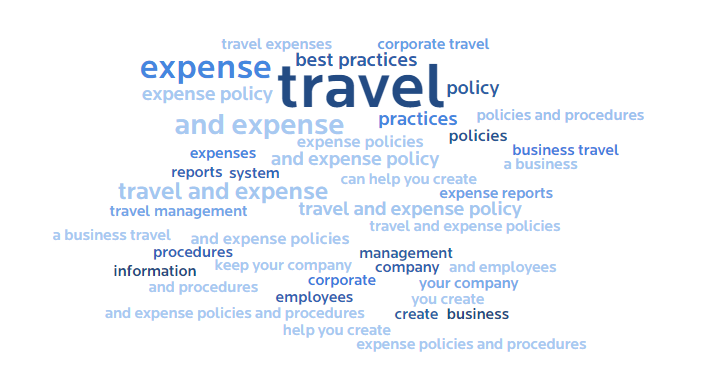Travel & Expense Policy: 6 Best Practices to Implement Today!

When it comes to corporate travel a straightforward travel and expense policy that clearly states what is considered authorized business travel and lists types of covered expenses is vital. A business travel management company that provides corporate travel management solutions can help you create travel and expense policies and guidelines that that will keep your company and employees on the same page.
Tips On Best Practices For Corporate Travel and Expenses Policy
1. Keep It Clear
Having a reasonable, unambiguous written travel and expense policy is essential to ensure that employees understand what is expected of them when traveling for business. Many companies create these policies as an afterthought, which can lead to conflict, overspending and misunderstandings between management and employees.
2. Keep It Simple
If you keep your company’s travel and expense process straight and simple, employees will be more likely to comply with it. No one wants to be bogged down with tons of paperwork or have to jump through a bunch hoops to get pre-approval for a business trip. A system that is overly complex can also make exaggerated expenses and mistakes more common. A firm, fast process with clearly-defined timeframes for submitting expenses can improve employee morale and increase productivity.
3. Collect The Right Information
Make sure your employees submit receipts and are aware of the specific information that must be included on expense reports. The IRS requires proof for claimed business expenses, and gathering relevant expense information can help your company avoid headaches at tax time. Different types of expenses may require different information for tax purposes. For example, reporting entertainment expenses as a deduction requires the company name and names of all attendees. A business travel agency that offers corporate travel event management can make it much easier to keep accurate records of entertainment and other business travel expenses.
4. Reimburse Expenses On Time
Just as employees are required to submit expenses in a timely manner, do the right thing and pay them according to your company’s published payment timetable. Delaying payment of travel expenses can present challenges with adherence to procedures and policy, cause accounting and cash-flow issues, and lead to plummeting employee satisfaction.
5. Enforce Travel And Expense Policies
Regular auditing of receipts and expense reports can make your expense procedures work better and help to maintain a fair system. It is critical for managers to enforce policies and procedures when employees make dubious travel arrangements or submit incorrect or inappropriate expenses. Upper management should make sure that those responsible for approving travel expenses clearly understand policies, adhere to them and hold employees accountable for missteps.
6. Review And Update Policies & Procedures
Reviewing travel and expense policies and procedures regularly is a must to keep your system running smoothly. Periodically evaluating what works and what doesn’t will help you keep improving procedures and cut down expenses. Distribute the updated version of your travel policy and procedure and make sure to explain any changes.
Corporate travel companies can help you create specialized travel and expense policies and procedures that will help you cut costs, increase employee adherence and make business travel more efficient and hassle free for everyone involved.
